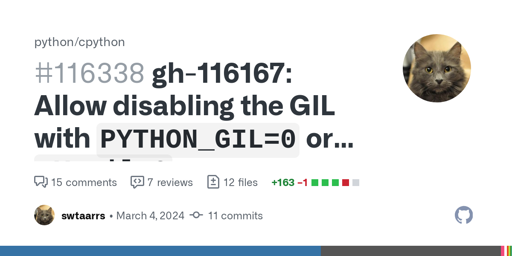I don’t want to access the Sun, what’s the TLDR?
The TLDR is that the article doesn’t explain that the reason it is circular (not to mention “invincible”) is because that is the defined boundary of a national park:
A LONELY volcano surrounded by a dark green forest dubbed the “goblin forest” has left explorers baffled by its perfectly circular appearance.
here is a copy+paste of firefox's reader view of the article
thesun.co.uk Mystery of perfectly circular invincible ‘Goblin Forest’ surrounding a sacred volcano in the land of Hob… Vera Demertzis 4–6 minutes
The lonely, almost perfect conical volcano sits in an eerily circular forest
Published: 18:54, 19 Nov 2024
Updated: 1:26, 20 Nov 2024
A LONELY volcano surrounded by a dark green forest dubbed the “goblin forest” has left explorers baffled by its perfectly circular appearance.
Sitting at 8,261ft tall, with a six mile radius , Mount Taranaki is the second highest peak on New Zealand’s North Island.
Sign up for The Sun newsletter
The perfectly circular Goblin Forest surrounds the Mount Taranaki volcano
6 The perfectly circular Goblin Forest surrounds the Mount Taranaki volcanoCredit: NASA/Landsat 8
The Goblin Forest is overgrown with twisted and deformed trees
6 The Goblin Forest is overgrown with twisted and deformed treesCredit: Getty Images - Getty
The stunning mountain featured as Mt Fuji in The Last Samurai and Mount Doom in a panoramic shot
6 The stunning mountain featured as Mt Fuji in The Last Samurai and Mount Doom in a panoramic shotCredit: Getty
The iconic Mount Taranaki volcano in New Zealand’s North Island is so striking, that it once doubled as Mount Doom in the “Lord of the Rings” and Mt Fuji in “The Last Samurai”.
The lonely, almost perfect conical volcano sits in an eerily circular forest containing thousands of warped and ancient kamahi trees fighting for space.
The trees are extremely twisted and deformed as a result of having to grow over and around the fossilised remains of trees that were destroyed in past eruptions.
The trees are also covered in hanging mosses and liverworts, adding to its creepy appearance. Read more world news
In 2017, the mountain attained a new level of protection when it was granted the same legal rights as a person.
The status is an acknowledgment of the Indigenous Māori people’s relationship.
Despite its perfectly circular appearance from above, the volcano has a history of dramatic change.
The mountain side has collapsed and rebuilt 16 times, with each cycle sending large debris avalanches down its flanks from past eruptions since it first formed around 135,000 years ago.
Steep slopes, loose sediments, high rainfall rates, and buried faults all contribute to its tendency to collapse.
The iconic volcano last erupted 200 years ago, but is still considered active and occasionally spits out mudflows.
Researchers believe that there’s a 30-50 per cent chance of another major eruption in the next 50 years, potentially effecting more than 100,000 people.
Recently, a hiker was rescued from the clutches of the mysterious mountain.
The hiker had called for help after he realised he was going into hypothermia.
He had been on a day trail run when he was caught out by weather in very cold temperatures, local police said.
A police spokesperson added: "Unprepared for the local conditions, the solo traveller was running out of food, water, and phone battery, and was 1400 metres up the mountain when he phoned for an ambulance.
“Taranaki Police Search and Rescue, the Taranaki Rescue Helicopter and alpine cliff rescue members were scrambled in an effort to get the man off the mountain as quickly as possible.”
Mount Taranaki isn’t the only perfectly circular mystery.
A mysterious spinning island shaped like a perfect circle has left explorers baffled for years.
Known as “The Eye” the uninhabited patch of overgrown vegetation floats around a crystal clear lake in Argentina slowly moving each day.
The bizarre natural phenomenon sits in the swampy river of Parana Delta in Buenos Aires and it has left many experts stumped over why or how it moves so freely.
Those lucky enough to have travelled to the island say it is almost a perfect circle due to the movement of the land mass.
Overtime the corners of the lake have managed to rub against the island as it moves and eroded itself into 360 degree smooth outlines.
Incredible aerial footage shows the 387ft spherical island, known locally as El Ojo, surrounded by a crescent of water.
The leading reason as to why the island floats is due to a natural process that sees water currents slowly shape and rotate the island in strong currents.
A few other shocking theories suggest it may have belonged to an ancient civilisation. READ MORE SUN STORIES
Or a more bizarre theory that claims the incomprehensible perfection and isolated location may be linked to extraterrestrial life.
Some say El Ojo could be a hidden UFO base but so far no evidence has backed this up.
Hanging moss and liverwort give the trees a creepy appearance
6 Hanging moss and liverwort give the trees a creepy appearanceCredit: Getty Images - Getty
A hiker was recently rescued from the mountainside
6 A hiker was recently rescued from the mountainsideCredit: Getty Images - Getty
The active volcano occasionally spews mudflow but hasn’t erupted in more than 200 years
6 The active volcano occasionally spews mudflow but hasn’t erupted in more than 200 yearsCredit: Getty








seems rather defaming to say its invincibility and circular shape are “mysterious” when they’re both established by law; maybe the volcano can sue The Sun? 🤔